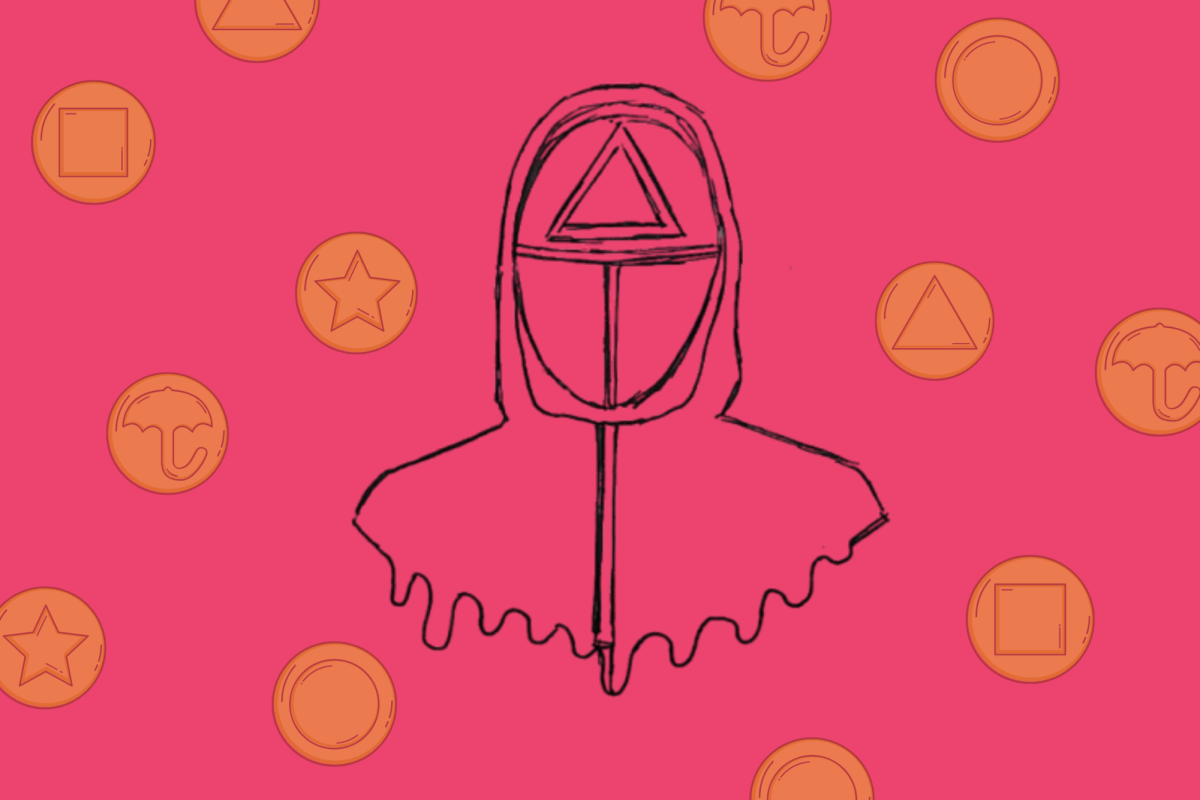Warning: This review contains spoilers for “Squid Game”
“The game will never end unless the world changes.”
This is probably one of the most notable lines of the second season of Netflix’s record-breaking show, “Squid Game,” yet this new season has gathered – generally – disappointed reviews. While “Squid Game 2” doesn’t have the same shock value as the first season, its continued social commentary adds a brilliant emotional undercurrent to the show.
In “Squid Game 1,” 456 people, who have amassed large sums of debt, are taken to an unknown island. There, they participate in a series of childhood games in order to win a cash prize of 45.6 billion won (or about $31 million USD). However, if a player loses a game, or makes even a slight mistake, they get killed, adding a dark twist to the show that initially captivated viewers when the first season came out in 2021 on Netflix. The winner of the first Squid Games, and the only one to make it out alive, is protagonist Seong Gi-hun, who leaves the games with a large sum of cash – as well as overwhelming grief and rage.
Two years later, at the start of the second season, Gi-hun is determined to end the games. He uses his cash winnings to employ an amateur gang to help him locate the island. But, Gi-hun ultimately finds himself in the games again, and once his plans go awry, he realizes that it’s up to him to convince the other players to end the game.
Here lies the biggest difference between “Squid Game 1” and “Squid Game 2.” While in the first season players were only allowed to vote to continue or end the games one time, in the newest season, players were given the chance to vote after every game. Yet, this “autonomy” they are granted is a part of director Hwang Dong-hyuk’s message: in a capitalist society, choice is an illusion. When the players vote, they are choosing between returning to lives full of financial hardship or risking death for the chance of a financial miracle. So, is there really a right choice if both outcomes guarantee suffering? That is, suffering for everyone except for the “winner.”
It’s the masterful storytelling through moments like these, moments that psychologically destroy the players, that makes this season an unsettlingly accurate portrayal of society. It’s gut-wrenching to watch Gi-hun desperately save the lives of players and fail. It’s uncomfortable to watch Lee Myeong-gi beg Kim Jun-hee to take him back after they — hopefully — make it out of the games. In “Squid Game 2,” players, under an astronomical amount of pressure, betray family members, lovers and friends, making the show terrifying in a way that goes beyond traditional portrayals of the horror genre.
However, it seems that the majority of viewers felt that the show was missing the element that made the first season so popular: shock-value. Perhaps this reaction from viewers proves Hwang’s point about society, after all.
TV is for entertainment purposes, of course. But, as a show progresses, individual episodes matter less in the context of emerging themes that convey some deeper meaning, or commentary on society. By the time someone is watching the second or third season of a show, they can probably predict what is going to happen, drawing focus away from the actual events in those episodes, and towards characters’ reactions to those events, as viewers grow more attached to those people.
If you’re watching “Squid Game 2” hoping for the thrilling bloodthirstiness from “Squid Game 1,” then perhaps you’re more similar to the VIPs in the show than you think, who spectate the players’ misery for entertainment. This season highlights the struggles of the working class that have been constantly overlooked, adding emotional complexity to each character.
There are indeed tortuous scenes in “Squid Game 2,” that exist in the violent moments of the show, but most importantly, in the moments that destroy the players’ mental clarity. “Squid Game 2” isn’t the type of show you just sit back and watch and, yet some viewers seem to think so. That’s why “the game will never end unless the world changes.”


































